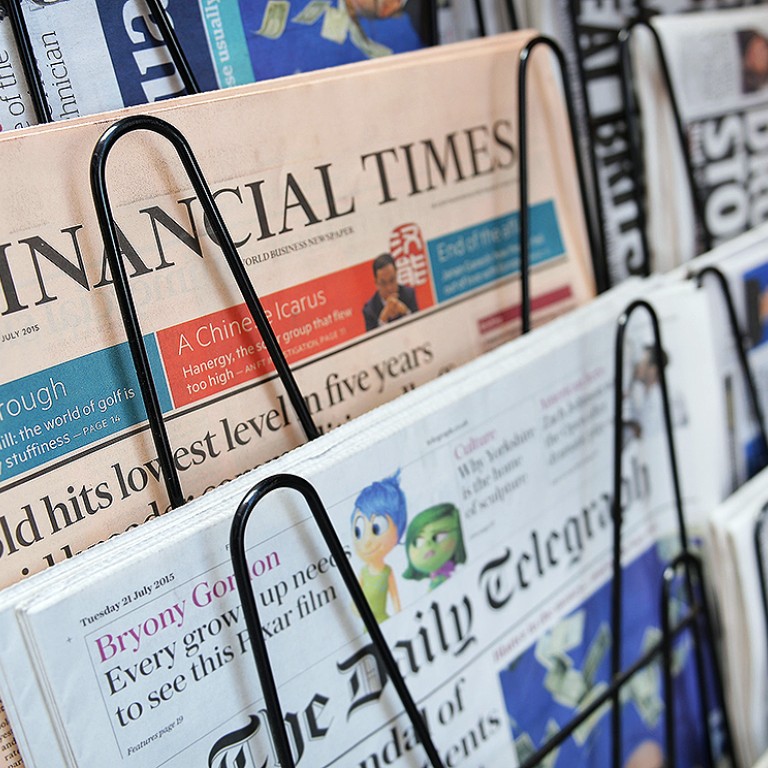
Update | Financial Times sold to Japan's Nikkei for US$1.3 billion in cash deal with Britain’s Pearson
Japanese media group Nikkei yesterday agreed to buy the Financial Times from Britain's Pearson in a £844 million (US$1.3 billion) all cash deal that brings together two leading financial news organisations from Europe and Asia.
Japanese media group Nikkei yesterday agreed to buy the from Britain's Pearson in a £844 million (US$1.3 billion) all cash deal that brings together two leading financial news organisations from Europe and Asia.
"We've reached an inflection point in media, driven by the explosive growth of mobile and social," Pearson chief executive officer John Fallon said in a statement. "In this new environment, the best way to ensure the FT's journalistic and commercial success is for it to be part of a global, digital news company."
The FT Group provides a range of business news services that also include a joint venture with Russian business paper .
Watch: Japan's Nikkei buys FT in $1.3bln deal
"I am extremely proud of teaming up with the , one of the most prestigious news organisations in the world," said Tsuneo Kita, chairman and group CEO of Nikkei. "We share the same journalistic values."
Asked about the paper's appeal, Steve Schifferes, professor of financial journalism at London's City University, said: "The has made one of the more successful adaptations to the web, driven by its ability to sell online subscriptions based on its unique information.
"This subscription base also provides advertisers with the ability to reach high-value individuals," he said. "However, it still faces challenges from the large number of free business news websites, and its paywall may limit its future growth, compared to new web-based rivals."
Launched in 1888, the widely respected business daily was purchased by Pearson in 1957.
The European edition first hit the printing presses in Frankfurt in 1979.
The paper is now printed all over the world, including in New York, Tokyo, Hong Kong and Dubai.
The paper has been printed on distinctive pink paper since 1893.
In February, Pearson forecast that group earnings could soar by a fifth this year, aided by cost-cutting and expanding online sales.
Pearson - which has become a world leader in education publishing - was said to want to focus on the booming sector, according to analysts.
The group, which earns 90 per cent of sales from its education division, had previously denied persistent speculation that the FT Group was for sale.
"Rumours have been circulating for a while about a possible sale of the FT Group, which is not a good fit with the rest of Pearson's business, which mainly concentrates on the education sector," said Schifferes.
FT education products served two-thirds of the world's top business schools, according to Pearson.
Yesterday's agreement would allow Fallon to focus on tackling a slowdown in the education unit weighed on by declining US college enrolments and falling textbook sales.

